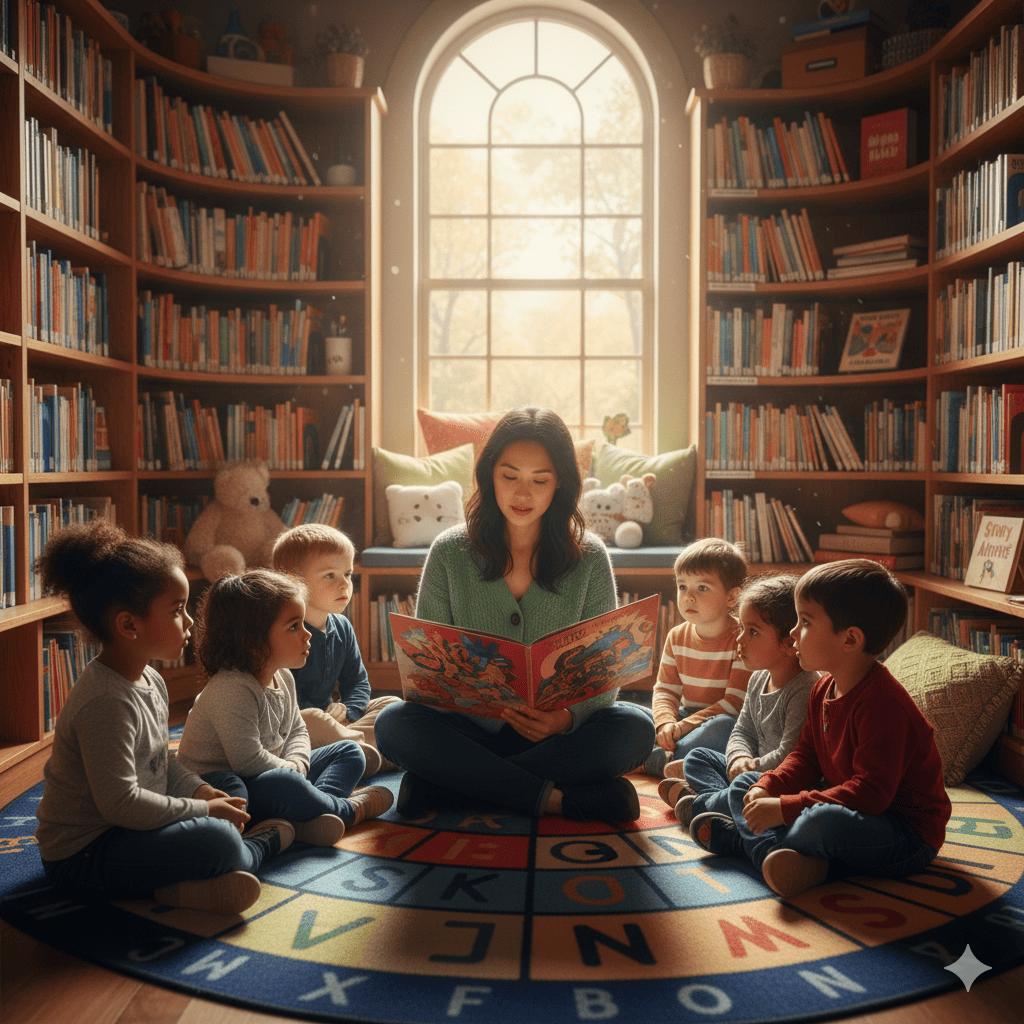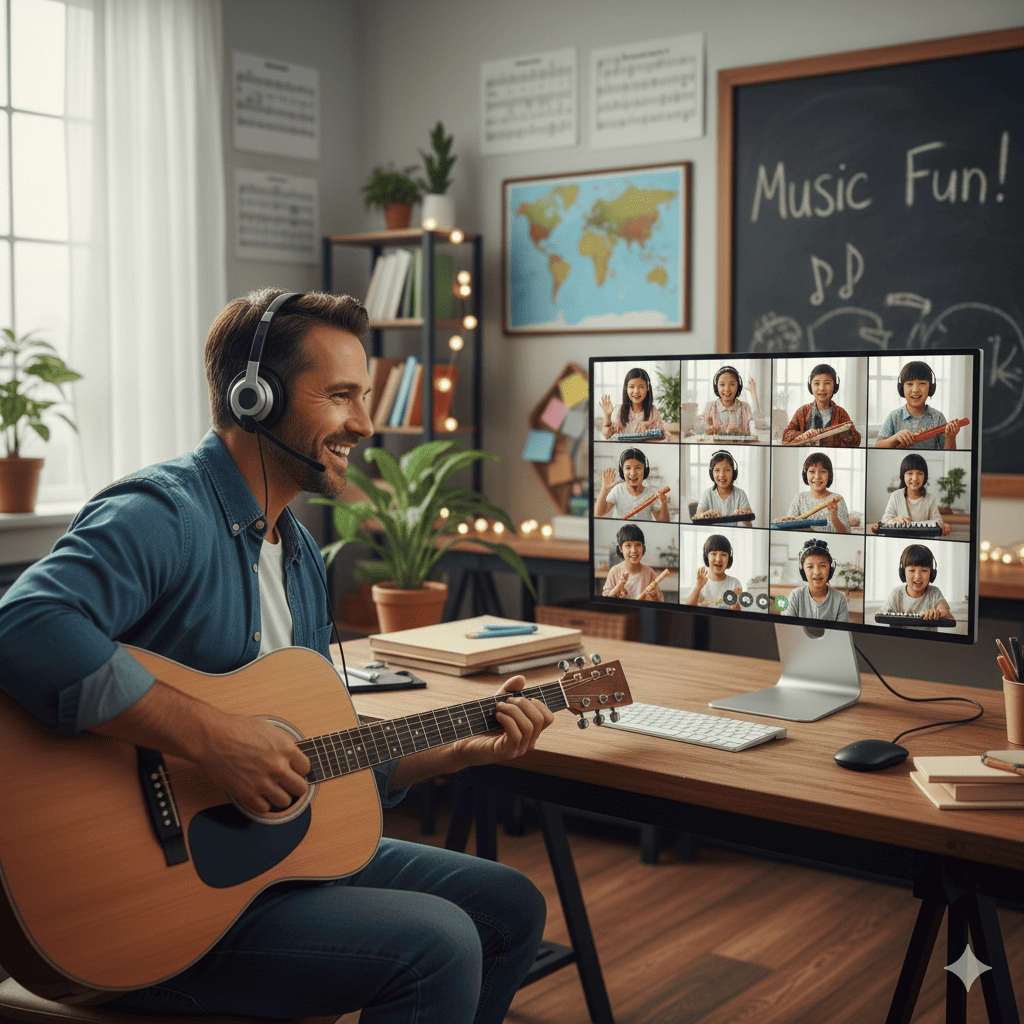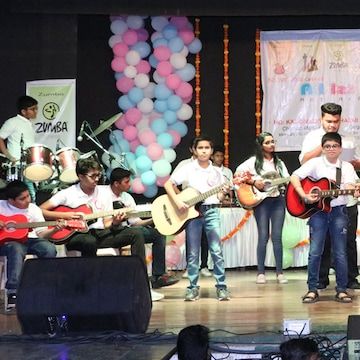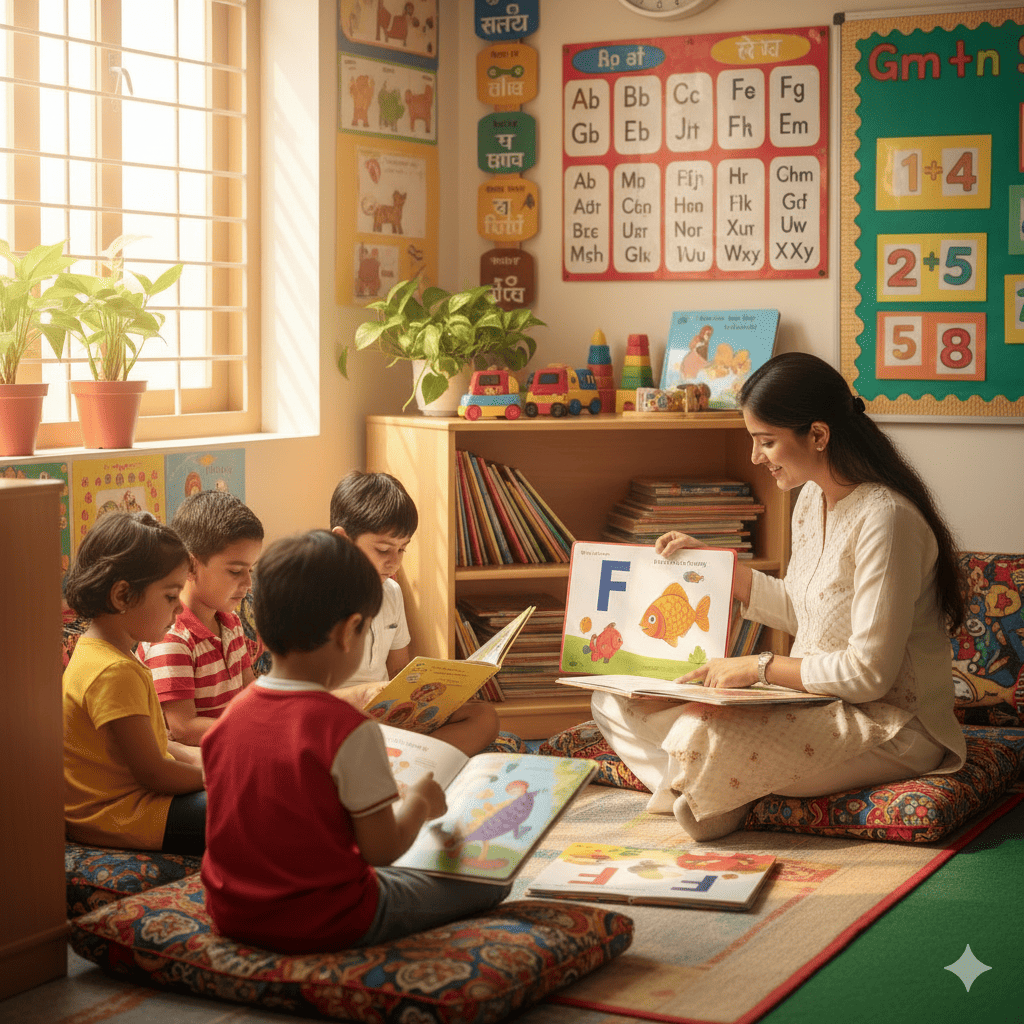Best Phonics Classes near Mulund East
Looking for the best phonics classes near Mulund East near you? Find interactive, engaging 1:1 live phonics training. Book a free trial.

Explore More in Mulund East, Maharashtra
Other Cities in This State
Popular Areas inMulund East
showing 1-8 of 8 results
Choosing the right phonics class in Mulund East
What to Look for in a Phonics Class?
Certified tutors & curriculum
Choose classes led by certified phonics specialists following a structured curriculum for measurable progress.
Small batch sizes for personalized attention
Smaller groups allow teachers to focus on each child’s progress, providing tailored guidance and support for better results.
Interactive and gamified learning approach
Engaging activities and games make learning phonics fun, helping young children stay interested and motivated throughout lessons.
Online vs Offline Phonics Classes
Online Learning
Flexible after-school slots
1:1 live coaching
Replay-anytime recordings
Offline Learning
In-person guidance
Immediate feedback
Peer socialization
Why PlanetSpark?
Experienced phonics coaches
Skilled instructors with expertise in early literacy ensure children receive high-quality, effective phonics instruction.
AI-powered personalized learning
Adaptive technology customizes lessons to each child’s needs, ensuring steady progress and engagement through tailored activities.
10,000+ students enrolled
Trusted by thousands of families, PlanetSpark’s phonics program has successfully helped over 10,000 students improve their reading and language abilities.
Testimonials
PlanetSpark Success Stories Across India
★★★★★
“Planet Spark has been an incredible learning platform for my child. The teachers are so patient and engaging, making learning feel like a fun adventure.”
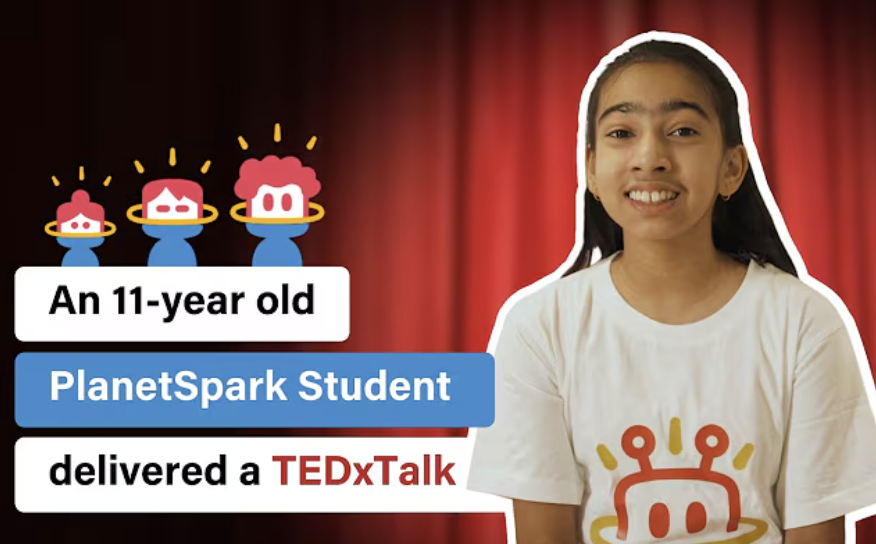
Get your free Phonics Assessment Quiz
Discover your child’s current phonics level in under 5 minutes.
Frequently Asked Questions
Children begin distinguishing sounds at 3 years, and research shows explicit phonics from 4-5 years accelerates reading accuracy and confidence. That’s why PlanetSpark opens enrolment from age 3 and groups learners by developmental stage, not just grade level. Early start = fewer decoding hurdles later.
Yes. When instruction is multisensory — songs, actions, letter tiles — 3-year-olds quickly link letters to sounds and build oral vocabulary. PlanetSpark coaches keep sessions to 25-minute sprints to match short attention spans while reinforcing each sound family with stories and movement.
Absolutely. Systematic phonics boosts reading fluency and spelling accuracy well beyond first-grade level; studies show seven-year-olds taught synthetic phonics can spell at a 13-year reading age. Our Level 2 track targets advanced blends, silent letters, and morphology so older learners read faster and write more confidently.
PlanetSpark follows a systematic synthetic sequence — single-letter sounds (s, a, t, p, i, n) ➜ common digraphs (sh, th, ch) ➜ blends ➜ alternative spellings. This mirrors international best practice shown to outperform unsystematic methods.
The four recognised approaches are Synthetic, Analytic, Analogy, and Embedded phonics. PlanetSpark’s core curriculum is Synthetic Phonics (explicit GPC mapping) with Analytic review games, giving kids both structured decoding and contextual practice.
Daily sessions of 20–30 minutes deliver the highest gains; several school systems now mandate at least 25 minutes a day. PlanetSpark schedules 3–5 live classes a week and provides bite-sized practice sheets for off-day reinforcement — no cramming required.
Learners join 1:1 or micro-group video sessions. Tutors use digital whiteboards, AI-powered pronunciation checks, and gamified quizzes. Parents get class recordings, weekly progress emails, and optional WhatsApp nudges so learning never stalls between lessons.
On average, PlanetSpark students master 42+ primary phoneme-grapheme pairs, read CVC/CVCC words unaided, and spell familiar words with >90% accuracy. Most move up 1–1.5 reading levels in a school term, according to internal assessment data benchmarked against global studies.
No. Your fee covers interactive e-workbooks, printable worksheets, decodable readers, and access to our Phonics GameLab app. A basic notebook for handwriting practice is all you’ll purchase locally.
Every class ends with a micro-assessment that feeds an AI dashboard. Parents see real-time mastery scores, upcoming focus sounds, and tutor notes. Quarterly reviews map progress to the National Literacy Framework, highlighting strengths and next steps.

